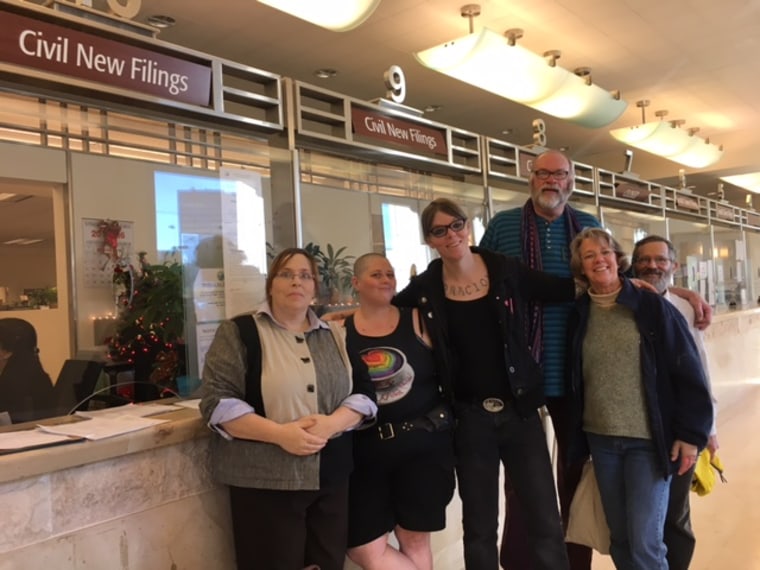
The San Francisco Superior Court on Wednesday granted the petitions of three California residents who had asked to change their gender to "non-binary" — meaning they are legally neither male nor female.
David Strachan, 69, Char Crawford, 32, and Xin Farrish, 34, filed the petitions together on December 2 with the help of attorney Toby Adams of the Intersex and Genderqueer Recognition Project (IGRP). The petitions were granted without a hearing.
The new group brings the total of number of Californians with legal third-gender status to seven. They were inspired by a series of successful cases last year.
"I hope that more people will feel empowered to challenge the norms ... To see that our sexual anatomy is on a spectrum and that gender is really socially constructed."
In June 2016, Jamie Shupe quietly walked into a Portland, Oregon courthouse and became the nation’s first legally non-binary citizen — a sudden development that stunned advocacy groups that had been attempting to achieve such a goal for years.
Santa Cruz resident Sara Kelly Keenan became the second legally non-binary person in the nation, and first in California, in September.
Keenan was quickly followed by Cameron Wu and Rain Emery Chamberlain, who both successfully petitioned to change their genders to non-binary in December in California courts. In early February, San Diego native A.T. Furuya joined them.
Strachan and Keenan were both born intersex, with a mix of male and female chromosomes and sex organs, while most of the others identify as gender non-conforming.
The rising number of people granted third-gender status by courts inspired legislation that would create a third-gender designation on California identity documents such as birth certificates and driver’s licenses. Senate Bill (SB) 179 was introduced by Senators Toni G. Atkins (D-San Diego) and Scott Wiener (D-San Francisco) on January 26.
IGRP had been drafting and submitting legislation like SB 179 for two years with little success. The current bill is sponsored by the Transgender Law Center and Equality California.
Such legislation may be necessary to help government agencies that issue identity documents catch up with the courts. While some non-binary people have been able to change their birth certificates (Keenan's, issued by New York City this December, now reads intersex), none have yet been able to change their driver's licenses or passports.
In other countries that currently have a third-gender designation, such as New Zealand, non-binary and intersex people's passports read "X" instead of the "M" or "F" marker that typically appear in the sex field.
In December, IGRP’s Adams told NBC Out the momentum for a third-gender movement was “exploding” after Shupe and Keenan made history by becoming the first legally non-binary Americans.
“I was flooded with requests on Facebook,” Adams said in a December interview. “I can’t even keep up with them anymore.”
Adams founded IGRP with Strachan in 2012. Strachan spent the next four years repeatedly petitioning to have his gender marker changed to no avail — until now.
Strachan, a retired landscaper and home renovator, first learned he was intersex in 1995. He told NBC Out in December that while he was “a little nervous” while filing his gender-change petition, he’s excited to see the third-gender movement include transgender, intersex and gender non-conforming people alike.
"I hope that more people will feel empowered to challenge the norms," Strachan said. "To see that our sexual anatomy is on a spectrum and that gender is really socially constructed."
